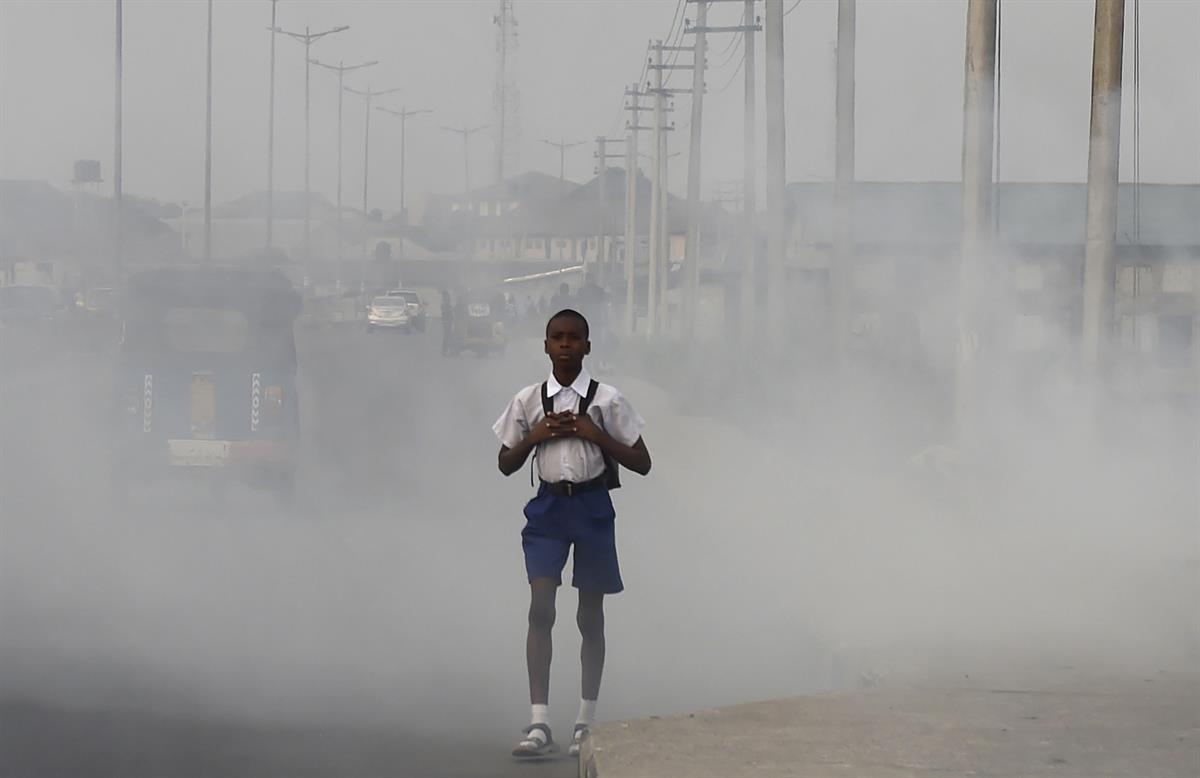According to a new report by Swiss technology company IQAir, only 13 countries, territories and regions have met the World Health Organization (WHO) guidelines for healthy air quality by 2022. Environment (UN-Habitat) to combat air pollution, examined data from more than 30,000 stations and sensors that monitor air quality in 7,323 cities in 131 countries, regions and territories.
As per the analysis results, only Australia, Bermuda, Bonaire, Estonia, Finland, French Polynesia, Grenada, Guam, Iceland, New Caledonia, New Zealand, Puerto Rico, Saint Eustatius and Saba and US Virgin Islands met the air quality guidelines , whose target is PM2.5 – or five micrograms per cubic meter or less. “PM” is the technical acronym for “particulate matter” – and PM2.5 are fine particles with a diameter of 2.5 microns or less. These particles are emitted from sources such as cars, factories and wildfires, and can have negative effects on human health when inhaled in large amounts. Air quality guidelines generally aim to limit the concentration of PM2.5 in the air to protect public health.
The United States Environmental Protection Agency (EPA) reports that the size of air pollution particles is directly related to their potential to cause health problems: small particles can penetrate deep into the lungs and some may even enter the bloodstream. Last year, countries and territories in Africa and Central and South Asia had the highest annual average concentrations of PM2.5 per population, according to IQAir. Chad has the highest concentration of PM2.5, with 89.7 micrograms per cubic meter, followed by Iraq with 80.1 and Pakistan with 70.9, according to the report. Bahrain, Bangladesh, Burkina Faso, Kuwait, India, Egypt and Tajikistan make up the rest of the top 10 most polluted countries in the report.
Despite growth in recent years, obtaining air quality data in Africa remained a problem. Only 19 of the continent's 54 countries had the necessary data available, according to the report. IQAir also highlights the importance of improving air quality worldwide and the need for concrete actions to combat air pollution. Poor air quality is a global problem that affects human health and the environment, so a joint effort by governments, companies and individuals is needed to tackle it, thus reducing its harmful effects.
Climate Justice: Recognizing Those Most Affected by Climate Change
Air quality is a crucial issue when talking about climate justice. For professionals working in areas related to the environment, sustainability and human rights, understanding and incorporating climate justice into their practices is essential. This means, among other things, recognizing that climate change has disproportionate impacts on historically marginalized groups such as indigenous populations, quilombola communities, traditional peoples and countries in poverty. Climate justice also entails recognizing that solutions to climate change need to be inclusive and democratic, involving the active participation of all affected people and communities. This requires strengthening the capacity of local populations to face climate challenges, respecting their traditional knowledge and creating effective mechanisms for consultation and prior and informed consent.
One of the ways to enable climate justice is to implement air quality guidelines and regulations to protect the health of vulnerable communities. In addition, it is important to develop and promote the implementation of collaborative multi-stakeholder models to advance environmental justice through pollution prevention. Other measures to enable climate justice include:
- Stop construction of toxic facilities;
- Defend renewable energy sources;
- Support sustainability;
- Carry out climate planning;
- Strengthen community monitoring of emissions.
The United Nations (UN) has several initiatives and guidelines to improve air quality in countries affected by pollution. One such initiative is the United Nations Environment Program (UNEP), which works with governments, businesses and civil society organizations to implement strategies to reduce air pollution and promote sustainable practices. Some of the strategies used by UNEP include the promotion of clean technologies and fuels, the encouragement of sustainable mobility, the use of renewable energy and the integrated management of solid waste. UNEP also works to raise awareness of the importance of air quality and to strengthen the capacity of governments and other stakeholders to address air pollution. With these methodologies, UNEP is helping to promote climate justice and protect the health and well-being of the most vulnerable communities.
In addition, the UN has the Kyoto Protocol and the Paris Agreement, which seek to limit greenhouse gas emissions and reduce air pollution. Implementing air quality standards, such as the World Health Organization air quality standards, also helps improve air quality in countries affected by pollution.
Air quality guidelines that aim to control the emission of pollutants such as PM2.5 are a way to protect the health and well-being of all people, especially those who are most vulnerable to the negative impacts of pollution , such as low-income communities and developing countries. Climate justice seeks to address the unequal distribution of the negative impacts of climate change and environmental degradation, which often affect marginalized communities the most. By implementing these guidelines and regulations, we can work towards a fairer and more equitable society where everyone has access to clean, healthy air.




